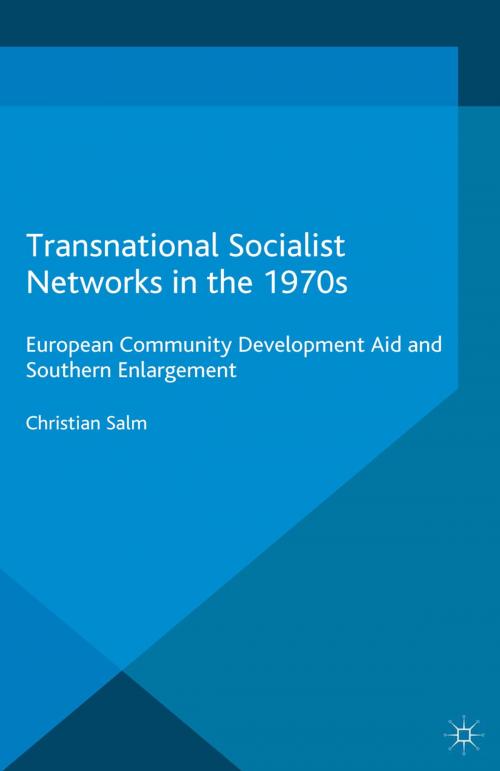Transnational Socialist Networks in the 1970s
European Community Development Aid and Southern Enlargement
Nonfiction, History, European General, Social & Cultural Studies, Political Science, International| Author: | Christian Salm | ISBN: | 9781137551207 |
| Publisher: | Palgrave Macmillan UK | Publication: | April 8, 2016 |
| Imprint: | Palgrave Macmillan | Language: | English |
| Author: | Christian Salm |
| ISBN: | 9781137551207 |
| Publisher: | Palgrave Macmillan UK |
| Publication: | April 8, 2016 |
| Imprint: | Palgrave Macmillan |
| Language: | English |
Transnational Socialist Networks in the 1970s argues that western European socialist parties' transnational cooperation across national borders significantly influenced politics and policy-making in what was the European Communities (EC). It focuses on the network-like informal structures that characterised transnational cooperation between the party members and leaders of different socialist parties involved in European affairs. Taking the example of two case studies, namely EC development aid policy and EC southern enlargement policy, the book demonstrates that the socialist parties strengthened their informal transnational network structures for the purposes of debating ideological and programmatic issues and finding policy solutions to common challenges in both policy fields. Moreover, it shows that the networks developed various functions to influence European governance. Against this background, the analysis in this book makes not only a significant contribution to the study of transnational networks of western European socialist parties and the history of European integration, but also adds to the understanding of the role of transnational networks in European politics and policy-making.
Transnational Socialist Networks in the 1970s argues that western European socialist parties' transnational cooperation across national borders significantly influenced politics and policy-making in what was the European Communities (EC). It focuses on the network-like informal structures that characterised transnational cooperation between the party members and leaders of different socialist parties involved in European affairs. Taking the example of two case studies, namely EC development aid policy and EC southern enlargement policy, the book demonstrates that the socialist parties strengthened their informal transnational network structures for the purposes of debating ideological and programmatic issues and finding policy solutions to common challenges in both policy fields. Moreover, it shows that the networks developed various functions to influence European governance. Against this background, the analysis in this book makes not only a significant contribution to the study of transnational networks of western European socialist parties and the history of European integration, but also adds to the understanding of the role of transnational networks in European politics and policy-making.















